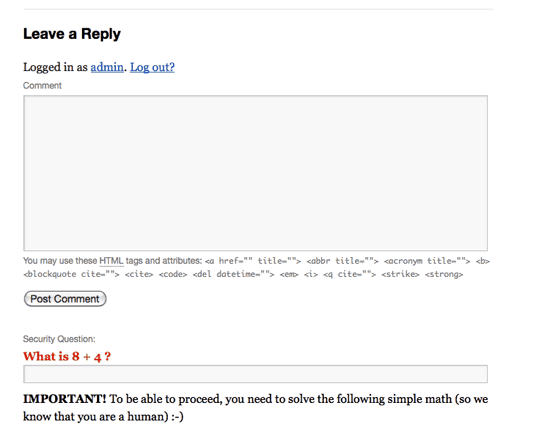Inside this Article
The Case for CAPTCHA
On a strictly technical side, CAPTCHA is easy to install and available for almost every environment. Its primary use is as an anti-spam tool, and in that regard, it’s fairly effective. It’s not a perfect system (I’ll get to that in a minute) but it delivers in a few areas:- Protecting website registration against useless information and bot accounts
- Preventing comment spam in the form of advertisements and unsolicited messages
- Demonstrating to customers that you take security precautions seriously when it comes to sensitive or personal information
The Case Against CAPTCHA
In setting up hurdles meant to deter spammers, sometimes actual users can fall victim as well. Given that some instances can be challenging and thus time-consuming at times, CAPTCHA can affect the usability of your website. In fact, research has shown that it decreases conversion rates by up to 3.2%, a significant amount of potential business that your company might be missing out on. There’s also the issue of plain bad user experience. A study conducted by Baymard Institute revealed that it is inevitable that CAPTCHA will frustrate users because they are difficult to decipher (as they’re supposed to be). Around 8.66% of all users will mistype their first attempt, which increases to whopping 29.45% if the CAPTCHA is case sensitive. Asking your visitors to go through one extra step increases the risk of abandonment and may lower brand affinity. Given the example below, can you really blame people for hating it? UX aside, another issue with CAPTCHA is that the subsequent rise in the machine and deep learning means it can now often be defeated. Resorting to it in order to fight the bot problem is no longer as effective as before, due to advancements in AI. There’s also the use of cheap labor that can manually solve this challenge. This makes it all the harder to spot spam but can also render CAPTCHA increasingly less effective over time.
UX aside, another issue with CAPTCHA is that the subsequent rise in the machine and deep learning means it can now often be defeated. Resorting to it in order to fight the bot problem is no longer as effective as before, due to advancements in AI. There’s also the use of cheap labor that can manually solve this challenge. This makes it all the harder to spot spam but can also render CAPTCHA increasingly less effective over time.
Alternatives to Traditional CAPTCHA
Due to some traditional CAPTCHA techniques losing their effectiveness, it is necessary to take a look at alternative methods. Arguably, there are better ways to tell if someone is a human without affecting the user experience much. One of those is the honeypot method, where you basically add fields as additional pieces of code that are hidden from the human eye but visible to bots. If these fields are filled in, it’s safe to assume it was done by a machine. This is a popular method whose primary appeal is its unassuming nature, which does not affect customer experience. You can also use an anti-spam plugin that blocks comment spam on the forms, such as Akismet. It has its own testing system for monitoring comments, trackbacks, and pingbacks on your website, and also learns about new forms of spam. Another option is to use a non-traditional CAPTCHA, such as bot-unfriendly questions, which has proven to be more effective than earlier iterations. The idea here is to include a question that a human can easily answer, unlike a bot who doesn’t know how to fill it in. Mathematical questions such as “What is 12-7?” are one of the more frequent examples that have had success. It’s important to note that these solutions are not 100% spam-proof, nor do they recognize every type of spam. Spam is a huge and fairly lucrative business, so the people behind it are always on the lookout for new and creative ways to beat the system. Hence, using multiple methods is recommended, provided that the combination doesn’t deter customers.
It’s important to note that these solutions are not 100% spam-proof, nor do they recognize every type of spam. Spam is a huge and fairly lucrative business, so the people behind it are always on the lookout for new and creative ways to beat the system. Hence, using multiple methods is recommended, provided that the combination doesn’t deter customers.

Short on time?
Take this one-minute quiz to learn which website builders are best for your project.
Verdict: Put the User’s Experience First
Sources Having a CAPTCHA is Killing Your Conversion Rate: https://moz.com/blog/having-a-captcha-is-killing-your-conversion-rate CAPTCHAs Have an 8% Failure Rate, and 29% if Case Sensitive: https://baymard.com/blog/captchas-in-checkout Images WordPress: https://wordpress.org/plugins/login-recaptcha/ Capterra: https://blog.capterra.com/captchas-more-hurtful-than-helpful-on-your-lead-generation-forms/ WordPress: https://wordpress.org/plugins/block-spam-by-math-reloaded/ Blurbpoint: https://www.blurbpoint.com/blog/having-a-captcha-is-injurious-to-your-conversion-rates/
















